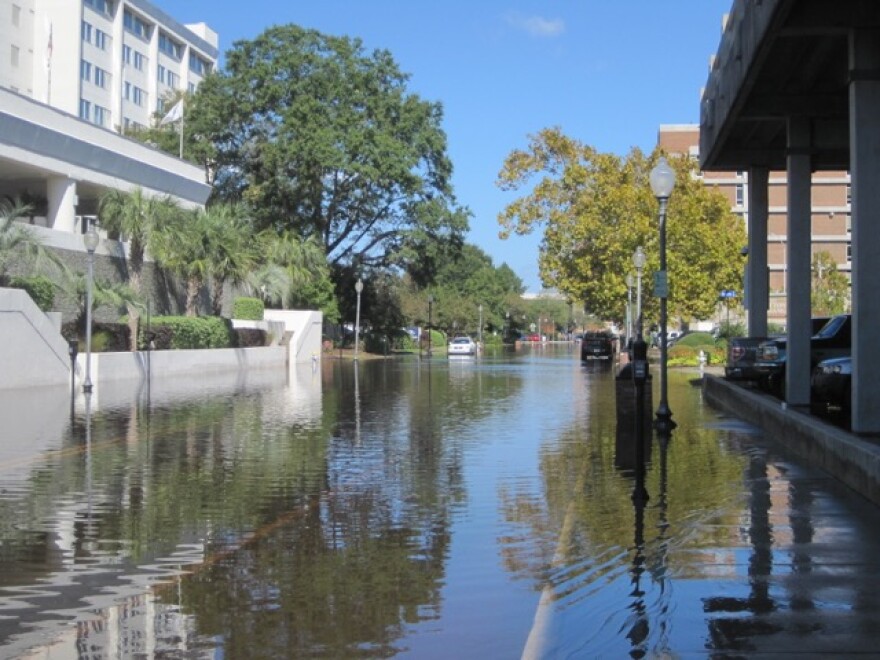NASA ranks 2017 as the second hottest year on record behind 2016. The National Climate Assessment, a report published by the federal government in November of last year, states unequivocally that humans are causing climate change and the time to act is now. While there are no policy recommendations in this federal report, many state and municipal governments are taking their own steps to curb the impacts of climate change.
Just this past July, the City of Wilmington adopted a measure to curb carbon emissions. The city is pledging to use more hybrid-vehicles and reduce waste in its landfill program, as reported by the Star News. How can local municipalities do more to reduce greenhouse gas emissions and plan for adaptation?
We’ll explore those questions – as well as weather effects researchers are attributing to climate change locally.
Jessica Whitehead is a Coastal Communities Hazard Adaptation Specialist for North Carolina Sea Grant. She served on the National Oceanic and Atmospheric Administration’s Federal Advisory Committee for the Sustained National Climate Assessment which has re-convened under a different umbrella and re-focused its work on state and local governments, universities, private sector firms, and NGOs.
Larry Cahoon is a Distinguished Teaching Professor of Biology and Marine Biology at the University of North Carolina Wilmington where he studies the effects of climate variation on coastal features and recently published a study titled, “Risks to Coastal Wastewater Collection Systems from Sea Level Rise and Climate Change”. He also teaches a graduate course on oceans and climate change.



